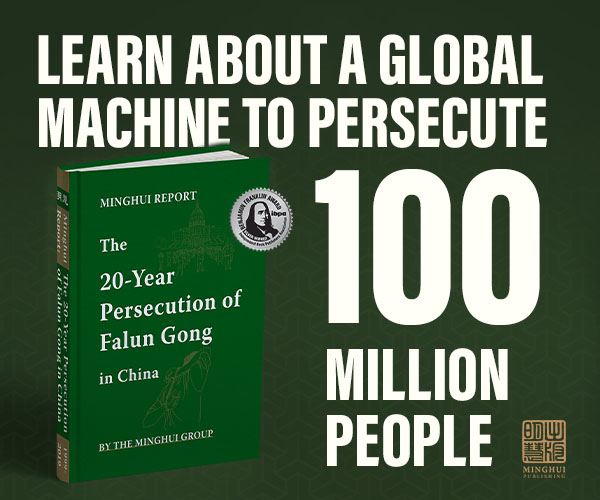(Minghui.org) Master Li, the founder of Falun Dafa, said,
“I’ve said that “a Great Way is most simple and easy,” and that many things are very simple...” (“Fa Teaching Given in New York City”, Teachings at Conferences in the United States)
I have recently come to a better understanding of these words.
When reading Minghui articles every day, we see endless persecution cases with practitioners harassed (especially during recent years’ “zero-out” campaign aimed to force every practitioner on the government’s blacklists to renounce their faith), forced to live away from home, arrested, tried, sentenced, or tortured. There are also hundreds of people who make Solemn Declarations every day to revoke words they said or wrote against Dafa under pressure.
As practitioners, we know that Falun Dafa is boundless. Then why couldn’t the persecution be resolved? In addition, some practitioners had illness tribulations which lasted a long time. Others sent forth righteous thoughts for them and shared understandings with them. But still some lost their lives in the end. What caused all of these losses?
In my opinion, it is because many practitioners did not really cultivate according to Zhuan Falun, the main teachings of Falun Dafa. Master said,
“To tell you the truth, the entire cultivation process for a practitioner is one of constantly giving up human attachments.” (Lecture One, Zhuan Falun)
But how many practitioners have truly taken Master’s teachings to heart and followed them?
Human attachments are connected with karma and xinxing. Without letting go of attachments, the karma is still there and one’s xinxing is unable to improve. A practitioner’s gong potency is thus limited too. They will not be able to suppress the evil if they encounter danger when clarifying the facts of Falun Dafa or distributing materials with information about Dafa and the persecution. Furthermore, if we are unable to let go of human attachments, or eliminate them completely, the old forces may “help” us in their ways – by subjecting us to arrest, harassment as with the “zero-out” campaign, illness tribulations, and other tribulations.
Many of us have focused our attention on superficial things such as the number of people whom we’re able to persuade to quit the Chinese Communist Party and its two junior organizations. How much time and energy have we actually spent on working to eliminate our human attachments? Without this critical step of identifying and relinquishing our attachments, how can we fulfill our mission well?
One example is the low number of people who quit the CCP every day. Would Master be happy to see the low number now? With such a low number, how long will it take to save the large number of Chinese people?
Master wrote,
“Whether you can let go of ordinary human attachments is a fatal test on your way to becoming a truly extraordinary being. Every disciple who truly cultivates must pass it, for it is the dividing line between a cultivator and an everyday person.” (“True Cultivation”, Essentials for Further Advancement)
Above are just my personal opinions. As an ordinary Falun Dafa practitioner, what I said may not be appropriate. Please always follow Master’s words. Nonetheless, I do believe that were we to truly eliminate all human attachments, the outcome would be different when we face harassment from the police or a hostile attitude from people to whom we tried to clarify the facts. In addition, we would also have confidence in our cultivation and in returning home with Master, because we are indeed following Dafa.
Time is limited and I hope we can all make the best use of it.
Editor's note: This article only represents the author’s understanding in their current cultivation state meant for sharing among practitioners so that we can “Compare in studying, compare in cultivating.” (“Solid Cultivation,” Hong Yin)
Views expressed in this article represent the author's own opinions or understandings. All content published on this website are copyrighted by Minghui.org. Minghui will produce compilations of its online content regularly and on special occasions.










